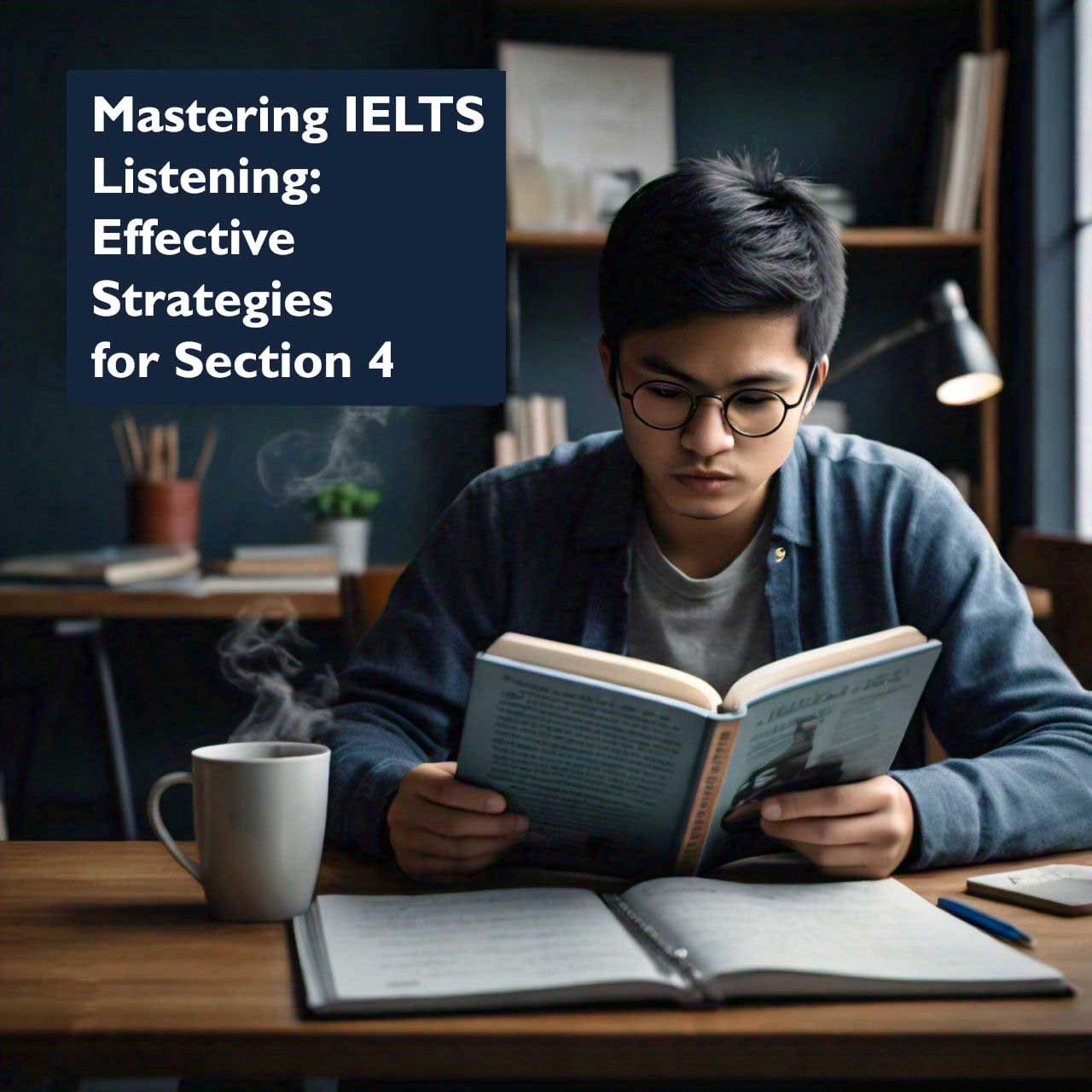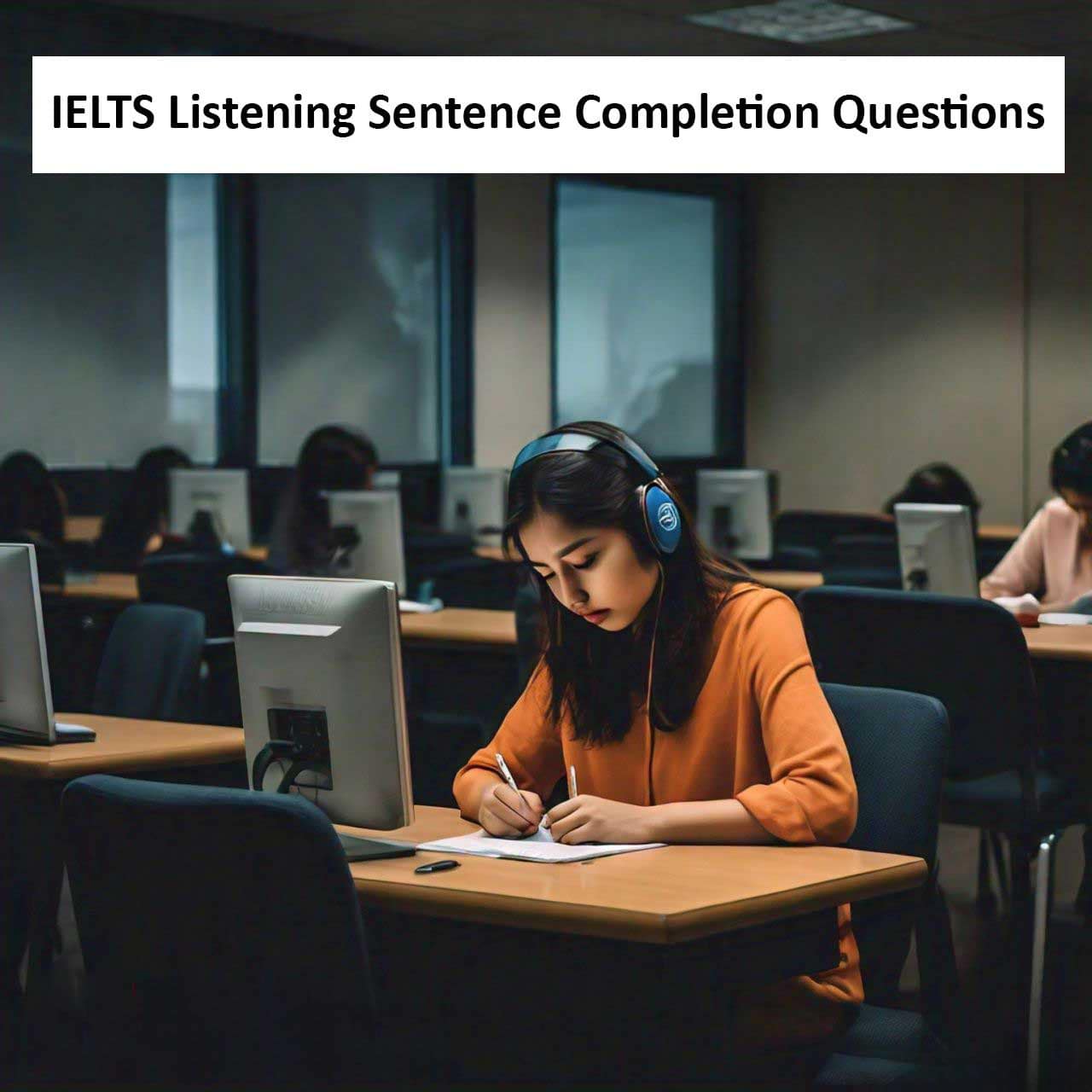The IELTS Listening test is a critical part of the IELTS exam, designed to assess your ability to understand spoken English in various contexts. Section 4 of the Listening test is often considered the most challenging part. It usually involves a monologue on an academic subject, such as a lecture or a talk, without any pauses. To help you excel in this section, here are some proven strategies and tips.
Table of Contents
Understanding Section 4 of the IELTS Listening Test
In Section 4, you will listen to a single speaker talking about an academic or educational topic. This part of the test lasts about 10 minutes, and you need to answer a series of questions while listening to the recording. The questions can be of various types, such as multiple-choice, sentence completion, or summary completion.
Key Strategies for Success
1. Familiarize Yourself with the Format
Understanding the format of Section 4 is crucial. This section consists of one long lecture or talk. The questions will follow the order of the information in the recording, but the lecture will be continuous without any breaks. Familiarize yourself with the common question types you may encounter:
– Multiple Choice: Choose the correct answer from a list of options.
– Sentence Completion: Fill in the blanks with words from the recording.
– Summary Completion: Complete a summary of the lecture with the correct information.
2. Improve Your Academic Vocabulary
Section 4 often involves more complex and specialized vocabulary related to academic subjects. To prepare:
– Read Academic Texts: Articles, research papers, and academic journals can help you get used to the type of language used.
– Create Vocabulary Lists: Make a list of common academic words and phrases.
– Use Flashcards: Utilize apps or traditional flashcards to regularly review and test yourself.
3. Develop Note-Taking Skills
Effective note-taking can significantly help in Section 4:
– Practice Abbreviations: Use symbols and abbreviations to jot down information quickly.
– Focus on Keywords: Listen for keywords and main ideas rather than trying to write everything down.
– Organize Notes: Develop a system for organizing your notes so you can quickly find information during the test.
4. Enhance Your Listening Skills
Improving your overall listening skills is essential:
– Listen to Academic Lectures: Websites like TED Talks, academic podcasts, and online courses can provide practice.
– Practice with Different Accents: The IELTS test includes various English accents. Practice listening to British, American, Australian, and other accents.
– Regular Practice: Use IELTS practice tests to familiarize yourself with the speed and complexity of the monologues.
5. Predict the Content
Before the audio starts, take a moment to predict the content:
– Read Questions Carefully: Skim through the questions to understand what information you need to listen for.
– Identify Topics: Based on the questions, try to predict the possible topics and types of information that will be discussed.
6. Stay Focused and Avoid Distractions
Maintaining concentration throughout the section is vital:
– Stay Calm: Nervousness can affect your concentration. Practice relaxation techniques.
– Avoid Looking Back: Once you have answered a question, move on. Don’t worry about previous answers.
7. Practice Regularly
Consistent practice is the key to improvement:
– Take Practice Tests: Regularly take full-length IELTS listening practice tests under timed conditions.
– Review Mistakes: Analyze your mistakes to understand where you went wrong and how to avoid similar errors in the future.
On Test Day
Arrive Prepared
Ensure you are well-rested and arrive at the test center with all necessary documents. Bring your ID and the confirmation of your test booking.
During the Test
– Follow Instructions: Listen carefully to the instructions provided.
– Use the Time Wisely: Use the time given before the recording starts to read through the questions.
– Write Legibly: Make sure your answers are clear and easy to read.
Conclusion
Section 4 of the IELTS Listening test may be challenging, but with the right strategies and consistent practice, you can significantly improve your performance. Focus on enhancing your vocabulary, honing your listening and note-taking skills, and familiarizing yourself with the test format. By following these strategies, you’ll be well on your way to achieving a high score in the IELTS Listening test.
Good luck, and happy studying!



